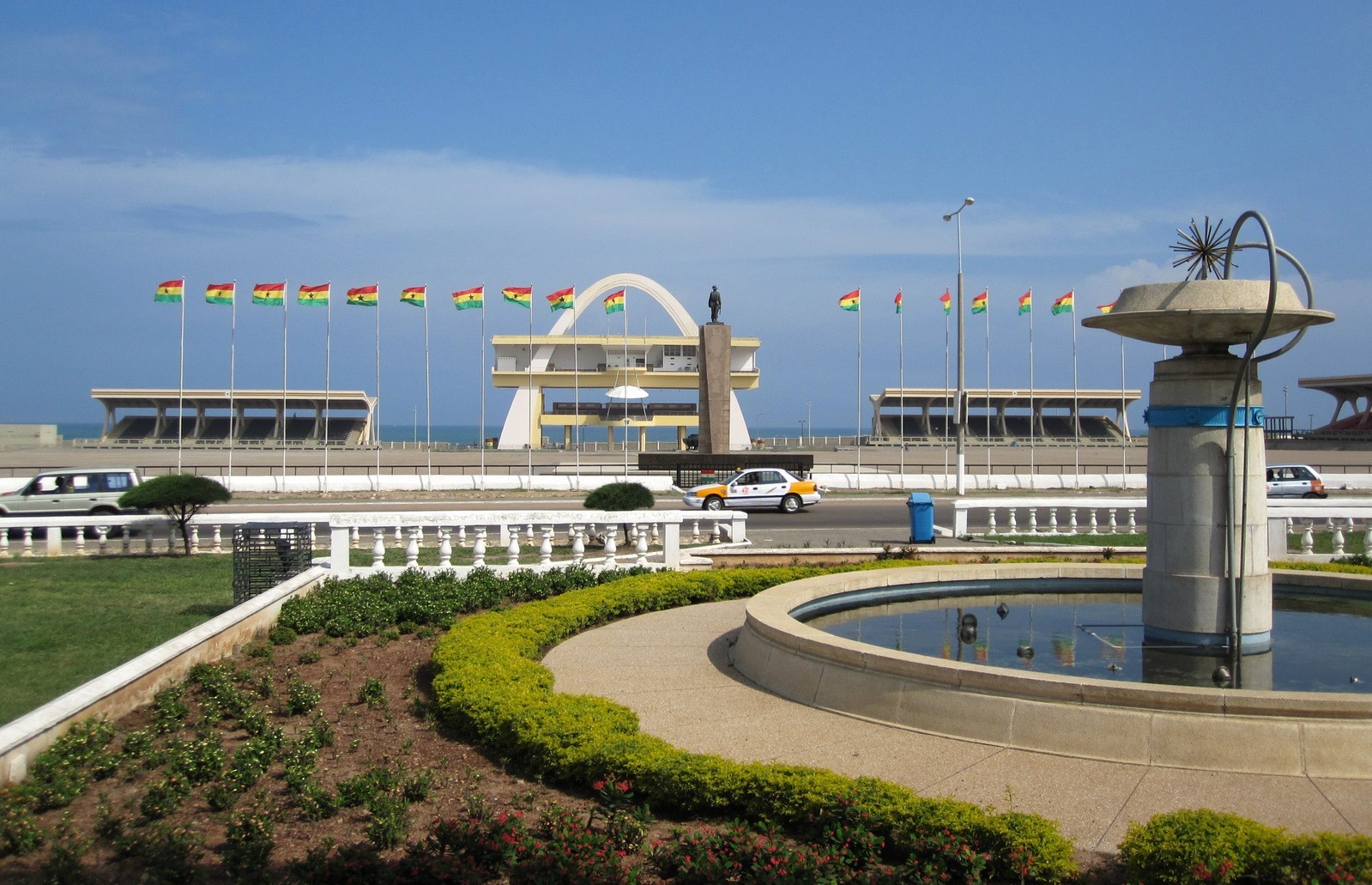Located in the heart of West Africa, Ghana and its capital city Accra, welcome visitors with open arms, warm smiles, and a vibrant colourful energy – it’s where culture, music, and dance seep into your soul. Accra is packed with things to do, from colourful, historical corners, culture, bustling markets and shopping experiences, exciting nightlife, excellent café culture and a vibrant art scene, as well as beautiful beaches to relax on.
National Museum of Ghana – Featuring unique and colourful exhibits that have deep roots in Ghanaian culture and history, the museum was opened on the eve of Ghana’s independence in 1957. Take some time to explore the numerous artifacts, such as archaeology, ethnography, music, art, jewellery and the famous Kente clothing as well as tribal masks from several other African countries.
Independence Square and the Independence Arch – This vast area with its modernist and Soviet-influenced lines is dominated by the Independence Arch, was built under Kwame Nkrumah. The stands around the Square can seat 30,000 people and is home to the annual Independence Day celebrations which take place on March 6th – it is also a popular venue for concerts and fashion shows, which take place throughout the year.
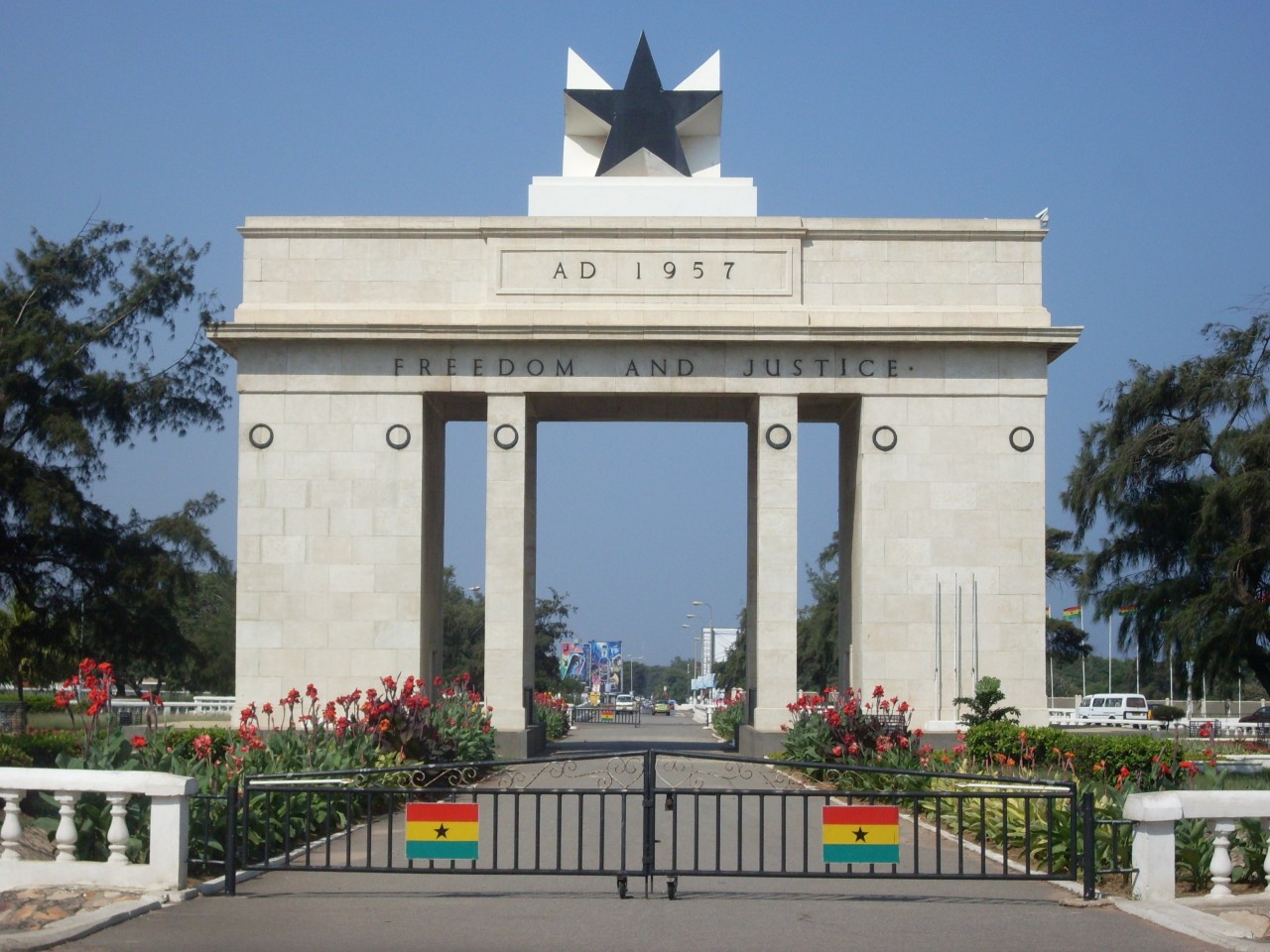
Towards the northern end of the area is the Memorial of the Unknown Soldier honouring those who died fighting for Ghana’s independence. The Black Star Gate monument, which is also part of Independence Square, has the words ‘Freedom and Justice’ etched firmly across its wall. The Black Star Gate is said to have been built in honour of Queen Elizabeth II’s visit to Ghana in 1961.
Kwame Nkrumah Memorial Park – The Kwame Nkrumah Memorial Park was erected in memory of the late Kwame Nkrumah life’s work. He was Ghana’s first prime minister and the president who led the country to independence from the British in 1957 and as a firm believer of Pan-Africanism established key infrastructures for the nation. The subterranean mausoleum and museum is where his remains are housed, and a separate part of the museum houses his personal artifacts and publications
W.E.B Du Bois Memorial Centre – William Edward Burghardt Du Bois was an African American civil rights activist who became a citizen of Ghana in the 1960s and was known as the ‘Father of Pan-Africanism’. There is a small museum and his personal library, it is also the final resting place for both him and his wife.
Religion:
Accra Central Mosque – Marvel at the amazing and intricate architectural designs, the Accra Central Mosque, with a hint of Turkish influence. It is one of the biggest mosques in Accra.
Presbyterian Church of Ghana, La Bethel – This protestant church, started by Swiss missionaries in 1828, has grown from strength to strength over the course of its hundred-year history and today, it has over 500,000 members. It has contributed to making Christianity the largest religion in Ghana, and its open worship services offer a lively and soul-soothing experience, regardless of your religious faith.
James Town:
Walk around James Town – this historic fishing community is the oldest district in Accra and is the site of Fort James, a British colonial trading post and prison, which was built in 1673 – this area was once a key settlement of Europeans during the slave trade. There are several old colonial buildings and historical traces that tell a story of James Town as a fishing community during its colonial days. The area, which has somewhat of a tatty appearance, has recently been revived with colourful street art which abounds along Cleland Road – if you happen to visit Ghana in August, then make sure to check out the Chale Wote Street Art Festival where the streets come alive with people, music and the delicious smells from the street food offering a wonderful opportunity to get fully immersed in Ghanaian life.
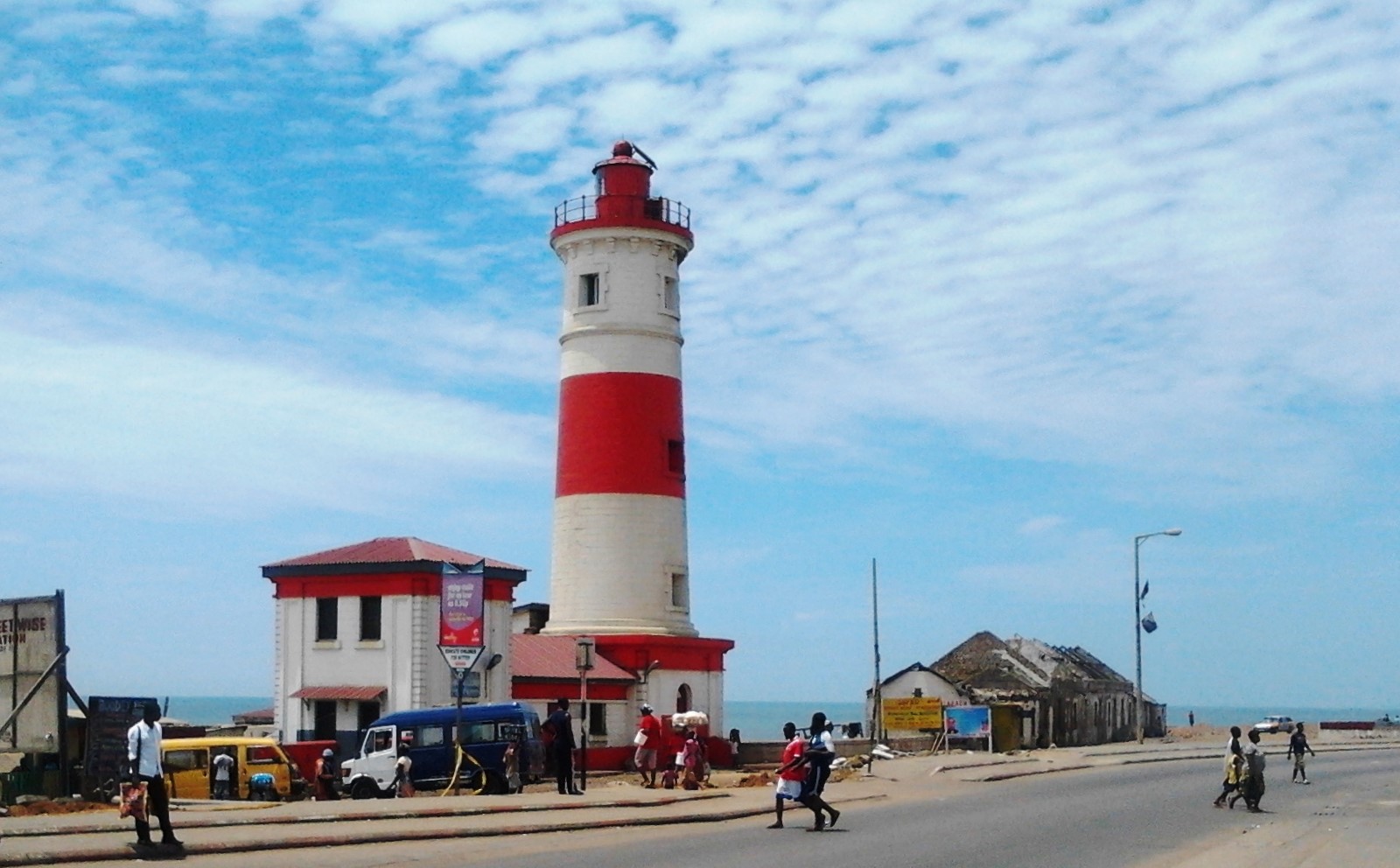
And stop by the colonial-era James Town Lighthouse which was built in the 1930s and offers panoramic views across the Gulf of Guinea from the top. Have a cool and refreshing beverage at one of many cafes, start a friendly chat with some of the locals and check out the outdoor boxing ring that supports the community’s boxing tradition. Also in the vicinity of Jamestown is Brazil House, a little museum built by the Tabon as a tribute to their rich heritage and unique traditions. The Tabon are a group of Afro-Brazilian people who returned to Ghana after spending many years as slaves in Brazil.
Osu:
Osu Castle – Osu Castle, sometimes referred to as Christiansborg as it was built by the Danes, is a UNESCO World Heritage site and offers an important reminder of Ghana’s slave history. It provides visitors the opportunity to learn about European colonial rule in Ghana as well as visit the underground slave dungeons.
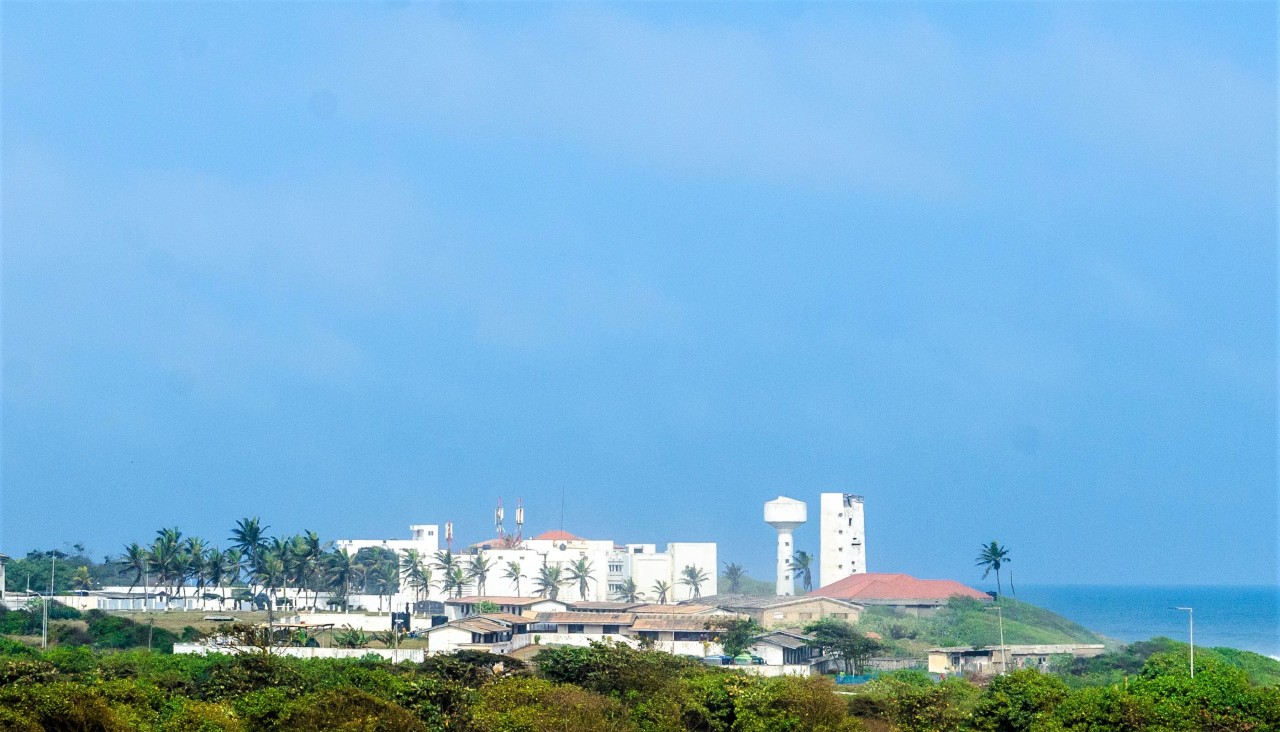
Shop along Accra’s Oso District Oxford Street – Get a feel for Accra’s the energetic street life with its pavement vendors, flower sellers, quirky shops selling leather ware, beautiful batik items, filigree jewellery and the fabulous local Ghanaian wax fabric.
Visit Global Mama’s – The NGO, Women in Progress supports African women and their families by selling the goods they produce using traditional methods, such as hand batiked textiles, glass beads, shea butter, and recycled items – their tote bags made from old flour sacks. Everything is made in Ghana and fairly traded and is a great tribute to the creativity of the female co-operatives around the country. It is a great place to shop for home decoration items as well as clothes for men, women, and children of all ages, with most garments made from colourful batik designs, tie-dye, or prints. It’s a great place to buy authentic gifts that make a difference!
Visit the vibrant bars and nightclubs at Oxford Street – You will find many cafes and pubs with live music bands and nightclubs where you can get your party shoes on and go dance as the locals do.
Markets:
Makola Market – The buzzing Makola Market that is just south of Jamestown offers a sense of organised chaos, as well as a wide array of goods, ranging from food ingredients to textiles and other unique items – all hawked from floors, racks, shelves, and head-perched baskets. And there’s the noisy environment, with yelling vendors, persistent shoppers and evangelical bands playing on stairwells, as well as the heat. But just go with the flow and enjoy the hustle and bustle for what it is.
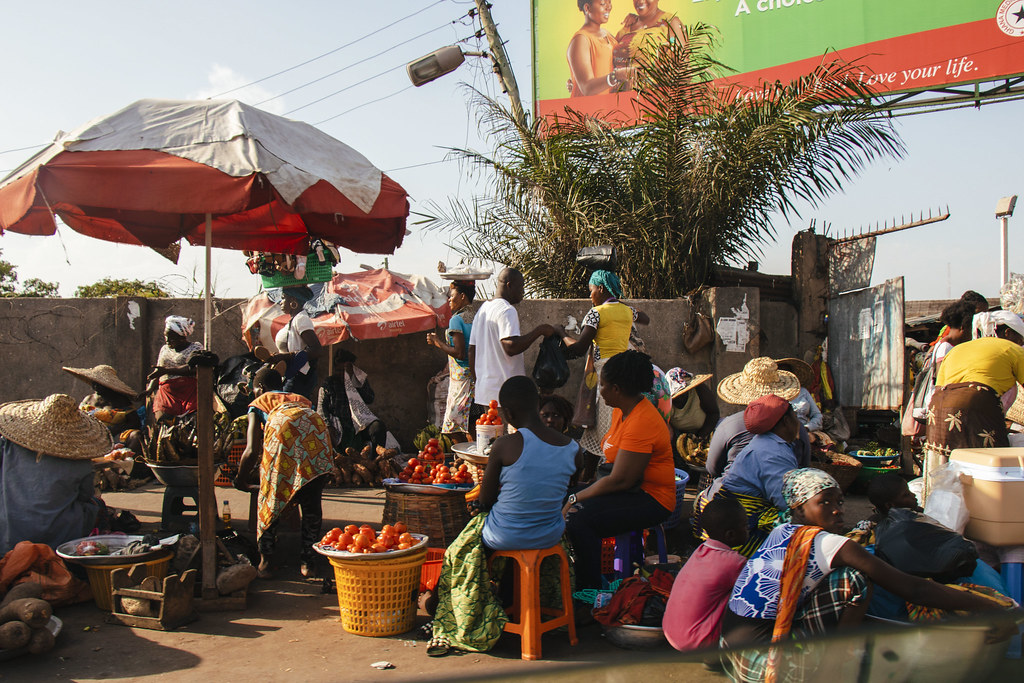
Accra Green Market – The Accra Green Market, linking small farmers who use sustainable agriculture practices with consumers, is Ghana’s first 100% local and organic farmer’s market. This market with its friendly community vibe offers good quality produce typical items for sale including herbs, hot peppers, handmade tinctures and oils, fresh fruit, jams, and preserves, as well as cooking workshops.
Art:
Check out the street art at the Ako Adjei Interchange – Initiated by the Ghana Association of Visual Artists (GAVA) in collaboration with the Korle Klottey Municipal Assembly and the Accra Metropolitan Assembly, the dull walls and spaces of the Ako Adjei Interchange have been transformed by Ghana’s graffiti street artists into vibrant Ghana street art depicting the country’s rich culture and bold colours! The talented minds and hands of are hard at work beautifying the city, one incredible mural at a time!

Visit a fantasy coffin workshop at Kane Kwei Carpentry – What might seem bizarre are actually works of art pioneered by Ghanaian artist Kane Kwei who, it is said paved the way for others to follow in his footsteps. Visit his workshop, which is now owned by his descendants, to see more of these coffins.
Watch a performance at the Alliance Française d’Accra – The Accra-based arm of the French cultural centre offers a large range of artistic activities every week, from live music events, regular art displays and talks from international artists with an obvious focus is on French and Ghanaian artists.
Shop local art – The Artists Alliance Gallery has three floors filled with colourful contemporary masterpieces crafted by established and aspiring local artists including well-respected Ghanaian artist Ablade Glover, Owusu Ankomah and George Hughes.
Beach:

Soak in the sun at Labadi Beach – Officially known as La Pleasure Beach to the local community, this shimmering stretch of beach is popular for swimming in the sea, playing some volleyball or beach soccer. There are several beach bars ready to help you quench your thirst, and if you’re there on a Friday and Saturday nights, the space transitions into a party scene where you can get a beer and indulge in street food. And on Wednesday nights Reggae DJs, and sometimes Reggae groups come from around Accra as well as from neighbouring countries, come and play. The beach draws a mix of international students, reggae lovers and Rastafarians.
Images – Wikimedia.org, Erin Johnson (Flickr), The Ghana Report.com

